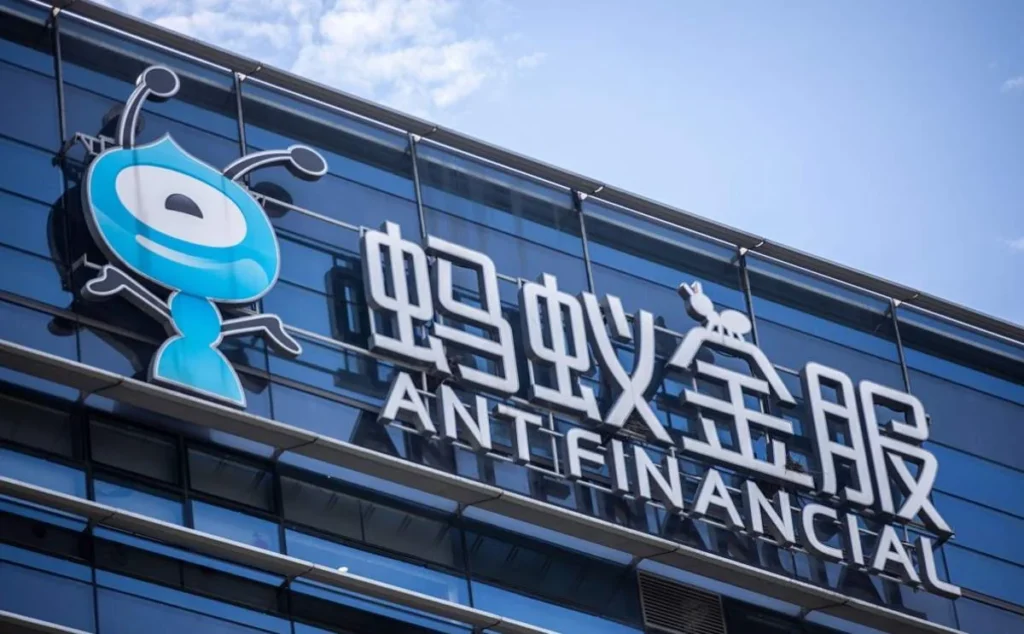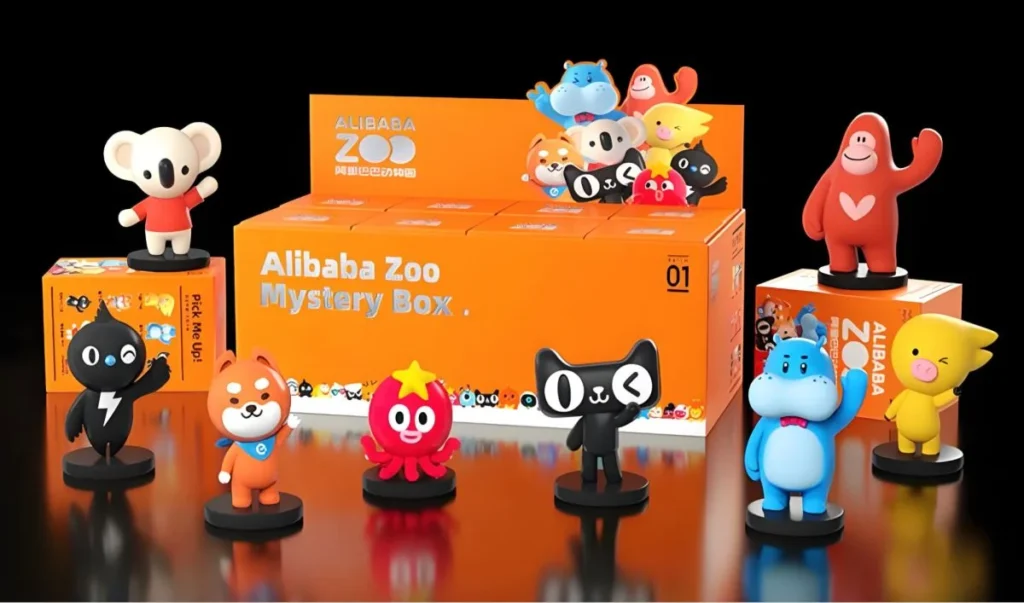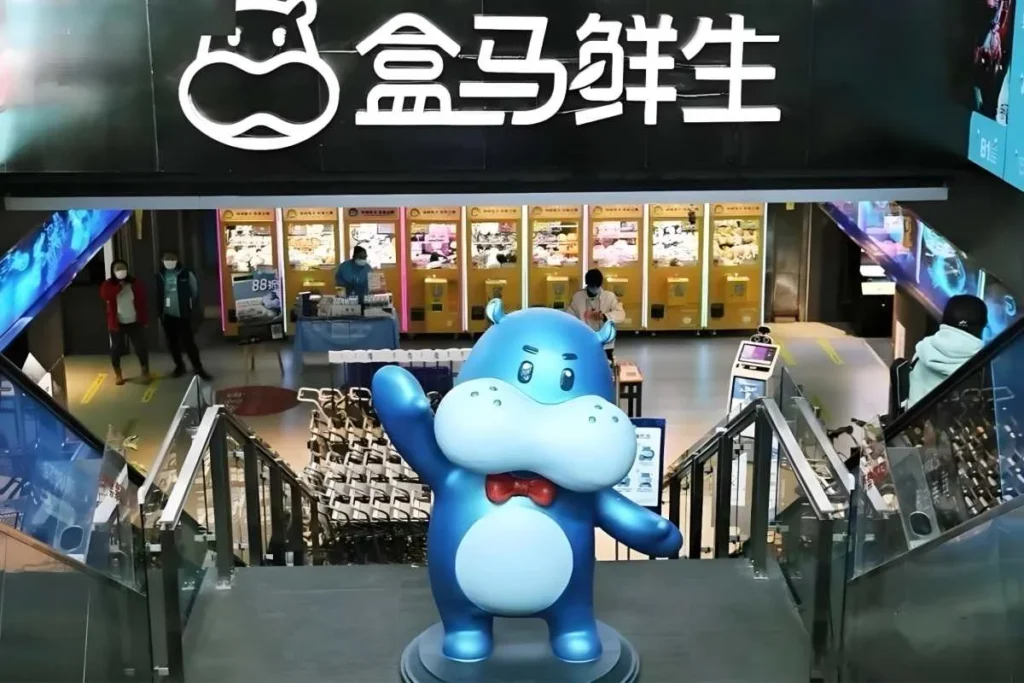CONTENT

By: Ashley Dudarenok
Updated:
Alibaba Group is far more than China’s leading e-commerce company. In 2025, it stands as a sprawling digital ecosystem that touches nearly every aspect of consumer and enterprise life. From online marketplaces to fintech, logistics, cloud computing, and AI research, Alibaba has established an interconnected network that drives trade, technology, and services worldwide.
This vast network is often referred to as the “Alibaba Zoo,” a nod to its mascot-driven branding and the diversity of its business “species.” Platforms like Taobao, Tmall, and AliExpress dominate the retail sector, while Cainiao operates one of the world’s largest logistics networks. Ant Group’s Alipay has become a financial super-app for over a billion users, and Alibaba Cloud is a national leader in AI and enterprise technology.
Behind this empire is a deliberate strategy: Alibaba positions itself as infrastructure rather than just a retailer, enabling millions of merchants, small businesses, and developers. It blends Chinese cultural branding with global expansion, creating a unique blueprint for building a tech conglomerate at scale.
This article examines Alibaba’s ecosystem domain by domain, analyzes its branding philosophy, and distills lessons for global tech companies navigating competition, regulation, and innovation, following its recent restructuring and strategic pivots.
Alibaba’s sprawling ecosystem can be hard to visualize, which is why the company leans heavily on playful branding to make it approachable.
Over the past two decades, Alibaba has developed a “zoo” of mascots and animal-themed identities for its businesses, a cultural touch that simplifies navigation for users and builds emotional connections with consumers.
This approach is more than aesthetics. Each mascot reflects the business unit’s values while reinforcing Alibaba’s brand as an ecosystem rather than a single app. During large-scale events like Singles’ Day (11.11), these characters appear in cross-platform campaigns, acting as visual anchors that help consumers navigate Alibaba’s vast services.
In June 2025, Alibaba introduced Pai Dachui, a tech-savvy elephant mascot for Alibaba Asset Management. The elephant’s AR glasses symbolize stability, intelligence, and innovation—qualities tied to the platform’s shift from a judicial auction site into a comprehensive asset management hub.
The Zoo branding strategy has become a cultural asset, helping Alibaba humanize a massive technology empire while differentiating itself in global markets that often favor minimalistic branding.

Commerce remains Alibaba’s foundation, but the company has evolved far beyond its early marketplaces. In 2025, Alibaba is operating the world’s most diverse retail network, blending
Two flagship platforms anchor Alibaba’s retail dominance in China:
These are supported by 1688.com for wholesale sourcing, Taobao Deals for budget-conscious shoppers, and Taocaicai, a fast-growing group-buy platform for groceries in smaller cities. Together, these services create a retail engine that reaches nearly every consumer demographic in China.
Alibaba has replicated its ecosystem abroad, tailoring services to local markets:
Alibaba’s International Digital Commerce Group (AIDC) coordinates these platforms under a single strategy, sharing infrastructure and data while retaining local agility.
Unlike Amazon’s centralized approach, Alibaba runs a “platform-of-platforms” ecosystem. Each platform maintains its brand identity and user base but connects seamlessly through Alipay, Cainiao, and Alibaba Cloud. This strategy enables Alibaba to dominate at scale without sacrificing market localization, a key factor in its success in highly diverse markets.

Alibaba’s logistics network, Cainiao, has evolved from a supporting service into a strategic global asset. Founded in 2013, Cainiao was designed to handle the massive scale of Taobao and Tmall; however, it has since evolved into an independent business powering e-commerce worldwide.
Cainiao operates one of the largest logistics networks globally:
Instead of building a fully owned delivery fleet like Amazon, Alibaba built Cainiao as a platform model. It partners with third-party couriers, integrating them into a unified system driven by Alibaba’s AI-powered data platform. This approach reduces capital costs while maintaining agility and scalability.
Cainiao’s competitive edge lies in data analytics and automation. Its smart routing system dynamically adjusts shipping paths based on real-time conditions, reducing delivery times and costs. Cainiao also deploys:
These innovations enable Cainiao to handle massive events, such as Singles’ Day (11.11), where it processes billions of parcels with minimal delays.
Cainiao has become essential to Alibaba’s international commerce strategy. Services like “5 USD 10-day delivery” make AliExpress competitive in Europe, Latin America, and Southeast Asia. Cainiao’s infrastructure also powers Lazada, Trendyol, and Daraz, providing them with Amazon-level logistics capabilities without replicating Amazon’s extensive infrastructure spending.
Originally a support system, Cainiao is now a standalone revenue generator. It offers logistics services to merchants outside Alibaba’s platforms, monetizing its network as a logistics-as-a-service product. This diversification strengthens Alibaba’s ecosystem while positioning Cainiao as a global leader in supply chain management.

Alibaba’s dominance in commerce is reinforced by its powerful fintech ecosystem, anchored by Ant Group. What began as a simple escrow payment system for Taobao in 2004 has evolved into a financial super-app serving more than a billion users globally.
Alipay is used by 1.3 billion people and 80 million merchants, processing over RMB 118 trillion ($17.9 trillion) annually. It holds a 54.6% share of China’s mobile payments market, competing closely with Tencent’s WeChat Pay.
MYbank, launched in 2015, demonstrates Alibaba’s approach to financial inclusion through technology:
While Ant Group operated independently after regulatory restructuring, it remains deeply tied to Alibaba’s ecosystem. Its global partnerships include Paytm (India) and Dana (Indonesia), positioning Ant as a bridge between China and emerging markets.
Ant Group’s halted 2020 IPO and subsequent restructuring marked a turning point. Beijing’s push for financial risk control forced Alibaba to:
Despite this, Ant remains a core pillar of Alibaba’s ecosystem, illustrating the power of fintech to drive commerce—and the importance of aligning with regulators in highly sensitive sectors.

Alibaba’s transformation from a commerce giant into a technology-driven conglomerate is built on its investments in cloud computing and AI. Alibaba Cloud has moved far beyond its original role of supporting Singles’ Day sales, becoming China’s largest cloud provider and a leader in enterprise AI.
DAMO Academy, its global research arm, strengthens this strategy by exploring frontier technologies like quantum computing, semiconductors, and robotics.
Alibaba Cloud dominates the Chinese market with a 37% market share and a growing presence in Asia-Pacific, Europe, and the Middle East. Its platform offers computing, storage, AI, and big data analytics to enterprises, governments, and startups.
Following a brief slowdown in 2022–2023, the division rebounded strongly, achieving 26% year-over-year growth in 2025. This resurgence demonstrates how Alibaba is leveraging cloud services as a long-term profit driver while reducing its reliance on traditional commerce.
Key focus points:

Founded in 2017, DAMO Academy (Discovery, Adventure, Momentum, Outlook) positions Alibaba as a leader in deep-tech innovation. Its labs in China, Singapore, and the U.S. drive breakthroughs in:
DAMO’s global footprint demonstrates Alibaba’s ambition to compete in retail, cloud, as well as frontier science and engineering.
Alibaba’s AI is embedded throughout its ecosystem, creating value at every level:
Alibaba’s City Brain project illustrates its ambition beyond commerce. Deployed in more than 20 cities, it uses AI to manage traffic lights, emergency services, and urban planning. Hangzhou, its flagship project, has reported over 10% reductions in congestion, proving Alibaba’s ability to deliver nation-scale solutions.
Alibaba Cloud and DAMO Academy form the company’s next growth curve. By heavily investing in AI and infrastructure, Alibaba is positioning itself as:
Alibaba’s investments in entertainment and culture are more than side projects—they are traffic drivers, engagement tools, and brand-building platforms that complement its commerce and cloud business. The company has built a multi-layered ecosystem spanning streaming, gaming, ticketing, and film production to keep users engaged within Alibaba’s world for work, shopping, and leisure.
Youku Tudou is one of China’s top video platforms, offering a wide range of licensed shows, films, and original programming.
Alibaba Pictures has evolved into a data-driven film studio with global reach.
Damai, its ticketing platform, dominates live entertainment bookings.
Gaming is a key tool for keeping users engaged. Lingxi Games, Alibaba’s gaming arm, focuses on immersive titles:
Alibaba’s cultural investments create synergy across its platforms:
Alibaba’s “New Retail” strategy has redefined how Chinese consumers shop by integrating online platforms, brick-and-mortar stores, logistics networks, and payments into one seamless experience.
Instead of treating e-commerce and offline retail as separate channels, Alibaba combines them to create a hybrid ecosystem where physical stores serve as fulfillment hubs, and customer journeys seamlessly transition between digital and physical touchpoints.
This approach, first championed by Jack Ma, is central to Alibaba’s goal of controlling the entire retail stack—from product sourcing and payments to delivery and analytics. It has enabled Alibaba to capture consumer spending even in segments where offline retail still dominates, such as groceries and fresh produce.
Multiple flagship projects anchor Alibaba’s offline-to-online (O2O) integration:
Alibaba’s O2O strategy is not just about convenience; it is a long-term play to control consumer data and drive loyalty:
Alibaba’s New Retail strategy differentiates it from Amazon and JD.com. While JD relies on vertically integrated logistics and Amazon focuses on a digital-first experience, Alibaba is betting on a hybrid ecosystem. This model resonates in China’s retail market, where consumers value instant gratification and physical experiences but also demand the variety of online shopping.
By embedding AI and IoT into these stores (for dynamic pricing, smart shelf stocking, and customer analytics), Alibaba turns every offline outlet into a data collection engine—fueling its AI-driven personalization efforts across the ecosystem.
Takeaway: Alibaba’s New Retail initiative is not just an experiment—it’s a blueprint for the future of retail globally. By leveraging technology to merge online and offline experiences, Alibaba creates a self-reinforcing ecosystem where every purchase, visit, and delivery strengthens its data moat and customer loyalty.
Alibaba is not just a retail and payments powerhouse; it has steadily become a critical enabler for enterprise productivity and digital infrastructure. The company’s suite of tools—ranging from collaboration apps to search engines—brings Alibaba into corporate offices, classrooms, and public institutions.
These platforms extend their ecosystem far beyond shopping and entertainment, positioning Alibaba as a partner for organizations that need communication, cloud integration, and AI-driven productivity.
Launched in 2014, DingTalk has evolved from a simple messaging platform into a full-featured enterprise operating system
DingTalk’s growth reflects Alibaba’s ambition to own not just consumer attention but also business productivity ecosystems, making it a competitor to Microsoft Teams and Slack in Asia.
Quark, introduced in 2019, showcases Alibaba’s shift toward AI-driven knowledge management:
Quark’s rise illustrates Alibaba’s strategy of building AI-native tools to complement its commerce and cloud businesses.
Alibaba also plays a major role in mobile-first search through Shenma and UCWeb:
Together, these services give Alibaba a significant data advantage, fueling personalization, product discovery, and advertising revenue.
Alibaba’s enterprise platforms are more than side businesses; they are strategic extensions of its ecosystem:
Takeaway: These enterprise tools create a sticky, multi-layered ecosystem. By embedding itself into both consumer and enterprise workflows, Alibaba reduces reliance on retail and advertising revenue while collecting high-quality data for AI innovation.
Alibaba’s growth trajectory has been shaped as much by external pressures as by its internal innovation. The company operates in one of the world’s most competitive tech markets and under a regulatory regime that has redefined how large Chinese platforms operate.
Alibaba faces intense competition across its core business lines, forcing constant innovation and reinvestment:
Alibaba’s response has been to focus on Alibaba ecosystem advantages rather than single-product battles. Its strength lies in combining e-commerce, payments, logistics, and cloud into a data-rich, integrated platform that rivals cannot easily replicate.
Alibaba’s transformation into a global tech infrastructure company is shaping commerce, logistics, fintech, and AI in ways few outsiders fully grasp. If your leadership team needs a clear, actionable strategy for engaging with Alibaba in 2025, ChoZan delivers it through on-the-ground intelligence and direct expert access.
Turn Alibaba’s complexity into your competitive advantage. Book a consultation to plan a custom expedition, research project, or leadership session tailored to your growth goals.
Alibaba’s mascot strategy is memorable because each character tells a simple story: the Taobao mascot feels playful, the Tmall cat feels premium, and the Ant embodies hardworking reliability. Each mascot brings personality to complex services. When you see one of those characters, it immediately connects you to a part of your daily life—shopping, paying bills, ordering groceries—with a friendly “face” that builds trust.
Local sellers on Lazada, Trendyol, or Daraz don’t face huge upfront investments because Alibaba shares infrastructure—payment, logistics, and marketing technology—through its international commerce group. You plug into a platform already built. For someone starting small, this means you can reach customers without having to build your own warehouse, payment system, or ad network.
Small merchants gain access to Cainiao’s global logistics network without needing to negotiate with couriers. You pack your goods, drop them off at a Cainiao-integrated point, and the system routes, tracks, and delivers them. That means better rates, automated tracking, and predictable delivery times—all without each merchant having to interface separately with different carriers.
Alipay is more than payments—it’s where you pay bills, book doctor appointments, pay for street food, shop for groceries, invest, and manage insurance. For someone going about their day—from grabbing breakfast to managing family expenses—it’s one-stop, no jumping between banks, apps, or checkout pages. It becomes a daily companion, not just a checkout tool.
Imagine you need a small business loan, but banks say, “Come prove your credit.” MYbank’s “310 model” means the system says “apply in three minutes, get funds in one second,” based entirely on your digital footprint—not on paper forms or credit history. That speeds trust, especially for gig workers or farmers who don’t have traditional collateral or formal records.
When you search for something on Alibaba, or a warehouse robot speeds your delivery, or a smart ad appears—these may be powered by DAMO-created tech. The academy quietly develops foundational tools—such as chip prototypes, AI algorithms, and robotics—that companies later integrate invisibly into their everyday services. You may not see the lab, but you still benefit.
Yes, they can. A corner grocery shop that connects to Freshippo’s system can track what people buy in real time, restock automatically, and offer personalized coupons. The store collects data on how often customers come, what they choose, and when. It feels like a neighborhood store, but smarter—guiding decisions with real insights.
When a character in a Youku video uses or wears something, viewers see it, and the system tags it to a product on Taobao or Tmall. If you like it, one tap later you’ve got it in your cart—without leaving the video. That fluid shift from “I noticed that coat” to “I just added it” feels natural and uncluttered. Cheap clicks turn into real cart value.
Think of Quark as a smart organizer: it summarizes your long chat, turns your notes into a neat plan, suggests what slide topics should look like, and groups your files the way you’d expect. If you’re juggling work, research, or school, it saves you from hunting through messy folders or rewriting outlines—Quark chips away at your workload by anticipating structure.
City Brain doesn’t involve you tapping or logging in. It detects rush-hour traffic in real time and tweaks lights so your commute shortens without you noticing. Emergency vehicles get green lights sooner. Parking surfaces communicate availability to apps. You benefit from less gridlock and smoother city rhythms—even if you didn’t ask for it.
You might watch a live-streamed cooking show on Youku, see the host using a unique wok, and by the end of the show, there’s a cart ready for you on Taobao. That seamless, informal progression from entertainment to purchase saves you from googling, hunting across sites, or scribbling down what you like—it turns impulse into action.
If you set up shop on Trendyol or Lazada under Alibaba’s umbrella, buyers get automatic trust signals—secure payments through Alipay, reliable delivery via Cainiao, and clear seller ratings powered by Alibaba’s systems. You get global credibility and operational backbone, even if you’re a new brand in Türkiye or Southeast Asia.
Local governments see Alibaba’s segmented platforms as customizable tools—they can partner with Alibaba Cloud for smart city projects, with Youku for cultural outreach, or with Freshippo for fresh-food distribution logistics—all without pulling in a one-size-fits-all solution. It’s componentized: they pick what fits their needs and keep control.
Alibaba designs tools like DingTalk and Quark to smoothly interact with Outlook, Zoom, or Google Suite. That means teams that use mixed tools (a small Hong Kong office, a remote freelancer on Gmail, and a mainland China HQ on DingTalk) can still collaborate. It’s not locked in—you get flexibility, still part of Alibaba’s network.
When Alibaba enters a new country, each mascot translates simply: the Ant for hard work, the hippo for freshness, the cat for quality. These universal traits—trust, freshness, authenticity—cut across cultural nuance. Consumers may not know the name, but they feel “that cute character means something trustworthy.” It’s branding without language barriers.
By subscribing to Ashley Dudarenok’s China Newsletter, you’ll join a global community of professionals who rely on her insights to navigate the complexities of China’s dynamic market.
Don’t miss out—subscribe today and start learning for China and from China!

KOL Marketing: An Essential Chinese Social Media Tool

WeChat VS Weixin, an Essential Guide for Marketers

5 Chinese Fashion Bloggers (KOLs) You Must Know in 2025
Ashley Dudarenok is a leading expert on China’s digital economy, a serial entrepreneur, and the author of 11 books on digital China. Recognized by Thinkers50 as a “Guru on fast-evolving trends in China” and named one of the world’s top 30 internet marketers by Global Gurus, Ashley is a trailblazer in helping global businesses navigate and succeed in one of the world’s most dynamic markets.
She is the founder of ChoZan 超赞, a consultancy specializing in China research and digital transformation, and Alarice, a digital marketing agency that helps international brands grow in China. Through research, consulting, and bespoke learning expeditions, Ashley and her team empower the world’s top companies to learn from China’s unparalleled innovation and apply these insights to their global strategies.
A sought-after keynote speaker, Ashley has delivered tailored presentations on customer centricity, the future of retail, and technology-driven transformation for leading brands like Coca-Cola, Disney, and 3M. Her expertise has been featured in major media outlets, including the BBC, Forbes, Bloomberg, and SCMP, making her one of the most recognized voices on China’s digital landscape.
With over 500,000 followers across platforms like LinkedIn and YouTube, Ashley shares daily insights into China’s cutting-edge consumer trends and digital innovation, inspiring professionals worldwide to think bigger, adapt faster, and innovate smarter.
Please check your email and confirm your subscription.